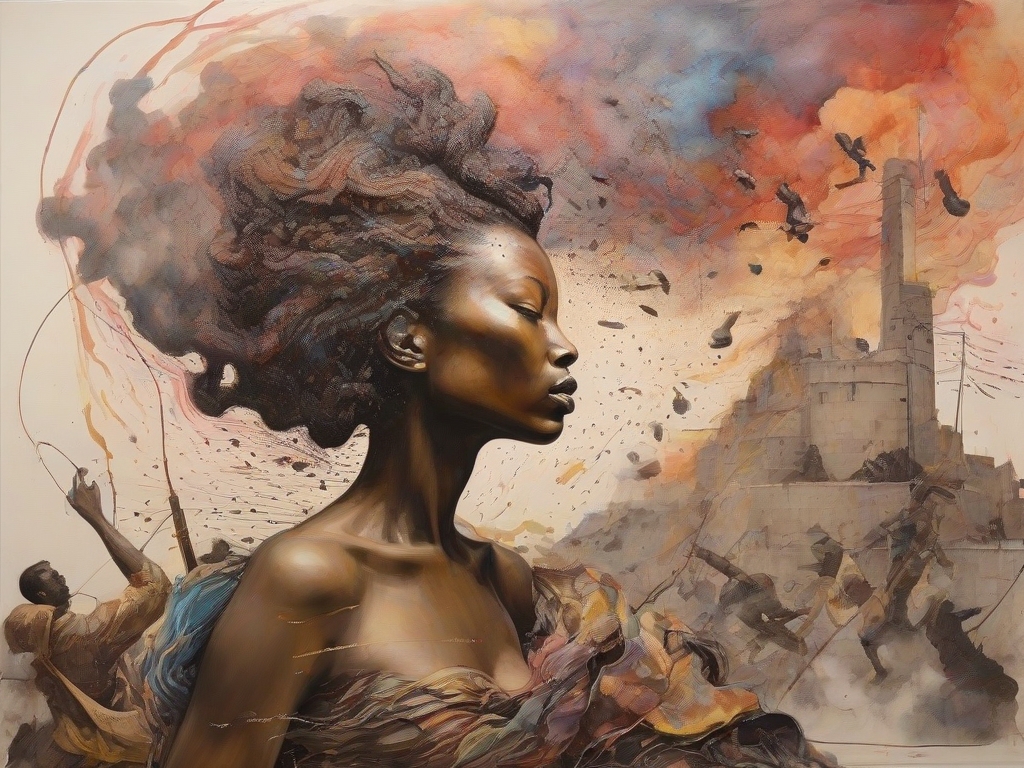A balanced view of Power

We are staring at a future where defeat isn’t experienced all at once, but through an inevitable withering away of military, economic, and political power and through wasting conflicts with minor foes.
One of my favorite authorities on "Power" as a subject is Steve Luke.
Steve Luke is a political scientist known for his innovative approach to understanding power. He argues that power is not just about coercion or manipulation, but rather it involves the creation and dissemination of ideas, meanings, and values that shape people's beliefs and behaviors.
Here are some central concepts in Lukes' theory of power:
Ideas and Meanings: Lukes posits that power is not just about physical strength or wealth, but rather it lies in the ability to shape people's thoughts and beliefs. He argues that power operates through the creation and dissemination of ideas, meanings, and values that become internalized by individuals and communities. These ideas and meanings can take many forms, including religious beliefs, cultural norms, political ideologies, and social identities.
Power as Ideology: Lukes builds upon Antonio Gramsci's concept of hegemony to argue that power is not just about domination, but rather it involves the construction of ideologies that justify and naturalize existing power structures. He suggests that those in positions of power often use cultural and intellectual institutions to promote their interests and maintain their dominance. Therefore, power is not just about brute force or coercion, but rather it involves the creation and dissemination of ideas that shape people's beliefs and practices. Exemplified in the book The Stellenbosch Mafia book and a quote: "In a country where politics, not the economy, has been the biggest driver of social change, proximity to power is non-negotiable for big business."
Resistance and Counter-Hegemony: Lukes acknowledges that power is not always exercised unilaterally, but rather it can be contested and challenged by those who are marginalized or oppressed. He argues that resistance against dominant power structures requires the creation of alternative ideologies and practices that can challenge and undermine the legitimacy of the existing order. Furthermore, Lukes suggests that counter-hegemonies can emerge when subordinate groups create new narratives, images, and discourses that challenge the dominant ideology and offer alternative visions of social order.
Intersectionality: Lukes recognizes that power operates in complex and intersectional ways, affecting different social groups in distinct ways. He argues that gender, race, class, sexuality, and other forms of identity intersect and interact to produce unique experiences of power and oppression. Therefore, any analysis of power must take into account these multiple dimensions of identity and experience.
Praxeology: Building upon the work of Karl Marx, Lukes emphasizes the importance of practical action and praxis in challenging and transforming power structures. He argues that social change occurs through the collective action of agents seeking to alter their circumstances, whether through revolutionary upheaval or gradual reform. Praxeology thus emphasizes the need for concrete political strategies and tactics to address power imbalances and achieve social justice. In Brave New War, John Robb laments: "We are staring at a future where defeat isn’t experienced all at once, but through an inevitable withering away of military, economic, and political power and through wasting conflicts with minor foes."
Lukes' emphasis on the ideological character of power highlights the importance of understanding the ways in which power operates through representations, narratives, and cultural artifacts. At the same time, his focus on resistance and counter-hegemony underscores the potential for social change through collective action and the creation of alternative visions of social order.
Ultimately, Lukes' theory of power invites us to consider the complex and multifaceted ways in which power operates in society, and to think critically about the ways in which we might challenge and transform dominant power structures towards more equitable and just social orders.